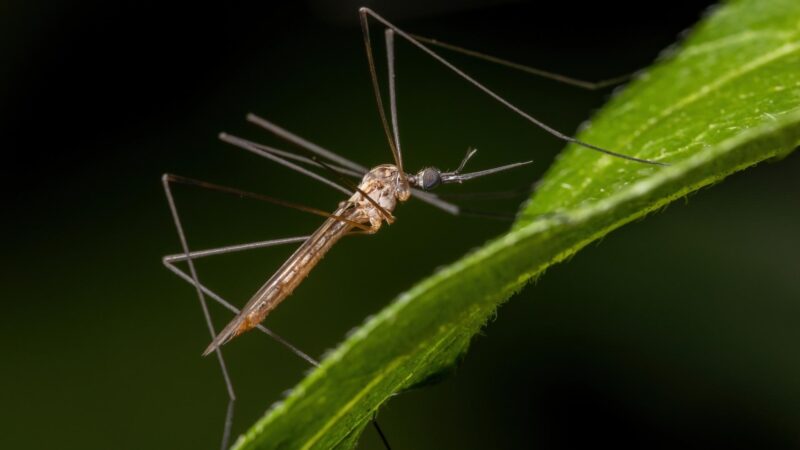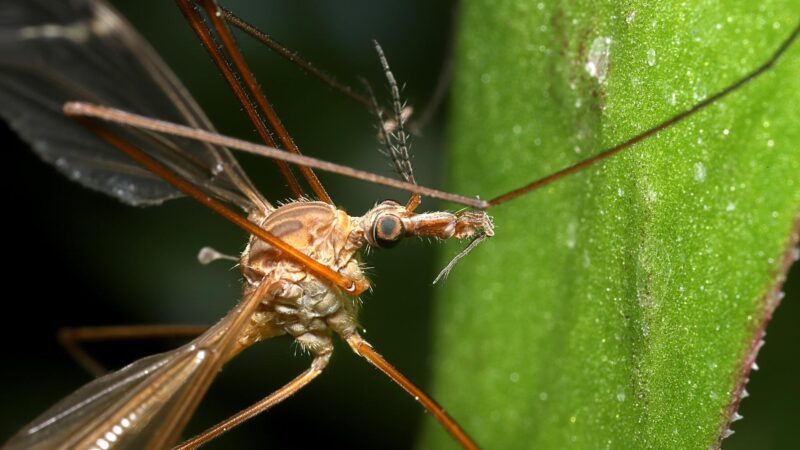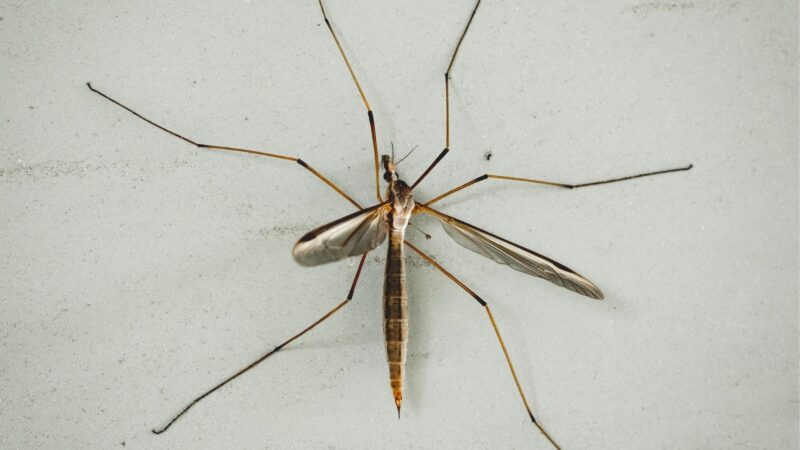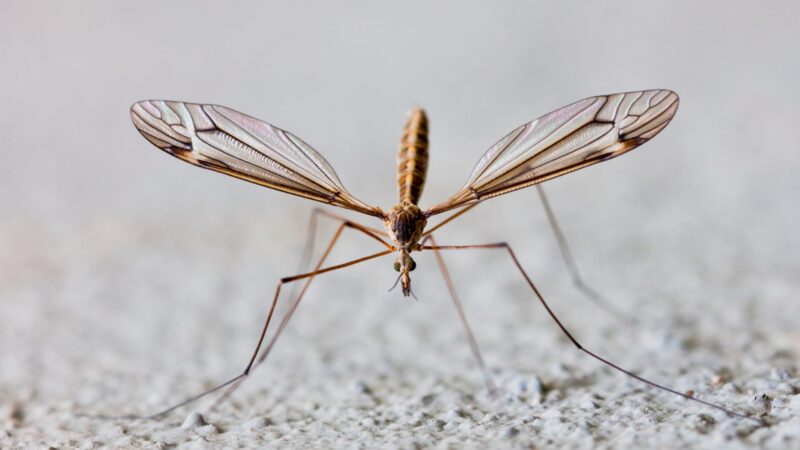The long-legged insects that fly around your house may have caught your attention as you can always see them bouncing on the corners, walls, and ceiling.
They’re called mosquito hawks, but they don’t feed on your blood. Although not harmful to humans, you may wonder why they’re around.
Why are we seeing large populations of mosquito hawks this time of year? Mosquito hawks emerge in high numbers as they’re attracted to wet ground or areas. When the lawn or landscape is wet, they look for food or a spot to lay eggs. The larvae of mosquito hawks grow quickly when they’re in moist soil that offers an adequate food supply.
Some of them appear when the soil in the city becomes saturated because of the monsoon. However, some species of mosquito hawks prefer cooler temperatures in winter.
You may think that these insects are giant mosquitos, or you may have heard stories that they prey on mosquitoes. Let go of these assumptions and myths, as this article will show you the facts about mosquito hawks.
Table of Contents
What Is a Mosquito Hawk? What Do They Look Like?

A mosquito hawk is an adult crane fly. The smallest species is just almost one millimeter. On the other hand, the largest one has a body that is two inches long with long legs that can be up to ten inches.
It has an inflatable rear end that makes them move easily on the soil.
To break water tension in some cases, mosquito hawks have fringed setae or caterpillar-like prolegs with a part that looks like a hook. The males in some species have antennae that have elongated segments.
Scientists need further study and research to discover its purpose as the female ones don’t have it. But both of them have big eyes.
Before turning into an adult mosquito hawk, it’s first a worm-like larva with tough skin. Its appearance is like a caterpillar or cutworm without legs.
What Purpose Do Mosquito Hawks Serve?
Mosquito hawks serve their purpose even when they’re still larvae. Before they can grow into an adult, these larvae feed on decaying organic matter. Thus, they help in the biological decomposition process.
In addition, the larvae of mosquito hawks feed on mosquito larvae that can bring diseases to humans when they turn into adults. The adult is harmless and dies after mating as they fulfill their responsibilities to reproduce.
Why Do We Have So Many Mosquito Hawks?
Wet surroundings allow for the high production of mosquito hawks. During the dry season, the larvae of mosquito hawks lay dormant in the soil and wait for the ideal time to grow.
When the soil becomes moist with grasses and plants growing, they feed on crowns and roots of turfgrass.
The activity of the larvae of mosquito hawks can cause damage. It’s rampant in the Pacific Northwest and California but only within Del Norte and Humboldt counties. The damage is rarely seen in dry, warm inland parts of the state.
What Attracts Mosquito Hawk?

The larvae of mosquito hawks are attracted to moisture since it gives them the chance to feed on roots. Also, you’ll find them beside lighted windows as they’re attracted to lights.
Hence, they get inside a house through any opening. To prevent any trouble, you have to close windows and doors before the time that you turn on the lights inside your house.
Is It Bad to Kill a Mosquito Hawk?
Since it’s a harmless insect, it’s bad to kill mosquito hawks. As mentioned, its larvae help in biological decomposition. They’re attracted to lights, so they tend to enter houses in the evening or at night.
This is the only annoying thing about them, as no one likes to coexist with insects.
You only need to stop mosquito hawks from entering your house. Sadly, the high number of adults that can appear in wet surroundings can’t be controlled. However, you can minimize their count by properly managing lawn and irrigation.
You have to aerate your lawn for good drainage and avoid overwatering the area. When fall comes, get rid of excess thatch that builds up from the previous months.
Do Mosquitoes Hawks Eat Mosquitoes?
Adult mosquito hawks don’t eat mosquitoes as they don’t need feeding. It’s only the larvae that consume the larvae of mosquitoes.
Do Mosquito Hawks Carry Disease?

Mosquito hawks or crane flies don’t carry any diseases. Their sole purpose is to mate and lay eggs, then they die.
What Happens if a Mosquito Hawk Bites You?
Nothing will happen as a mosquito hawk doesn’t bite.
Are Crane Flies Same as Mosquito Hawks?

Crane flies and mosquito hawks are the same. They’re only two different terms, but they refer to the same insect with long legs.
Should I Kill Mosquito Hawks?
Again, adult mosquito hawks are harmless. It’s only their larvae that can damage your lawn.
Before deciding whether to kill mosquito hawks or not, check the damages on your lawn. Here’s a guide from Washington State University to make you decide easily:
| The average number of mosquito hawks per square foot | Decision |
| 0 to 25 | No need to kill them; Just fertilize appropriately; Treatment is necessary for new turf or not well-established or those with the poor root structure |
| 25 to 50 | No need to do anything if your lawn is healthy and vigorous; other considerations are its condition, location, and turf usage |
| 50 to 80 | Treatment is necessary; Long-term solutions must be applied |
Treatments are best applied in the middle of April. If the situation is bad, you have to opt for lawn alternative plants as a long-term solution. Use organic pesticides like Monterey Insecticide/Pesticide Treatment Concentrate and Southern Ag to take care of the larvae. Spread it around the area three or four times.
Apart from buying a ready-to-use product, you can also make your solution by mixing dish soap, garlic, and oil to eliminate the adult mosquito hawks.
Frequently Asked Questions
What Is the Biggest Mosquito in the World?
Although a mosquito hawk looks like a large mosquito, it’s not identified as one. The biggest mosquito in the world is Toxorhynchites or commonly called elephant mosquito or mosquito eater.
The regular mosquitoes grow from 0.15” to 0.4”, but this one grows in the length of 0.71” and has a wingspan of 0.94”.
Luckily, elephant mosquitoes don’t suck human blood. They are after things that are rich in carbohydrates, such as fruits, nectar, honey, and juices or sap from damaged plants. The food of its larvae is also different from other blood-sucking mosquitoes.
The larvae of elephant mosquitoes eat the larvae of other species, which means they’re beneficial to humans. They can eat those that cause problems and bring diseases.
Some environment scientists even suggested distributing Toxorhynchites to different places to counter dengue fever. However, it was a failure as they mistakenly introduced other species.
What Harm Mosquito Hawks Cause?
As mentioned, adult mosquito hawks are harmless. They no longer feed once they become adults. The only thing that they intend to do is to mate and lay eggs to produce the next generation.
What Smells Do Mosquitoes Hate?
Mosquitoes hate the smell of some plants that are made into essential oil.
- Citronella plant – The oil of its leaves has properties that repel mosquitoes. Crush the leaves to obtain oil that you can apply to your skin to keep mosquitoes away.
- Cypress essential oil – This has a woodsy odor that isn’t appealing to mosquitoes, and it’s ideal to use when staying in a cabin for vacation.
- Fennel essential oil – You can use this in summer when mosquitoes are on the rise. Some studies show that it’s effective in killing these insects.
- Clary sage essential oil – You can mix this with aromatic room spray or place it in a diffuser to scare mosquitoes away. Its nice, floral scent enhances mood, so you might want to have it after a long day to ensure that no bugs can wake you up from sleep.
- Immortelle essential oil – With its floral scent, it can uplift the ambiance in the room and repel insects like mosquitoes at the same time.
- Yarrow essential oil – Mix this with a diffuser inside your house as its fresh, sweet aroma can keep mosquitoes away.
- Lemon eucalyptus essential oil – Mosquitoes are discouraged to enter a room when they smell a fresh lemony aroma.
- Catnip essential oil – A study at Iowa State University discovered that this oil is ten times stronger than commercial bug repellents.
Summary
The love of mosquito hawks for the lights can annoy you as they enter your house. So, you need to put some effort into preventing them from entering your house.
The adult ones are harmless. But larvae can ruin your lawn if it’s still in an early phase with poor root structure. Besides this, mosquito hawks don’t cause any trouble.
List of Sources
How to Get Rid of Mosquito Hawks
Crane Fly Frequently Asked Questions